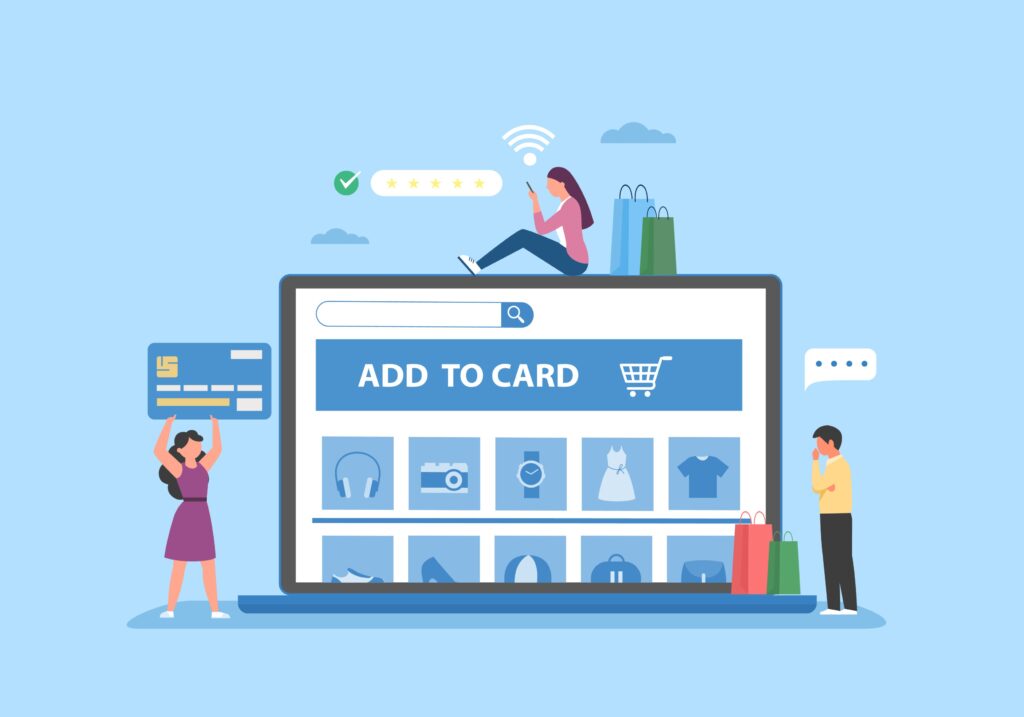In today’s fast-changing digital economy, having a strong online presence is more than a business strategy it is a survival requirement. Every brand, from small startups to large enterprises, wants to reach customers faster, deliver a personalized experience, and maintain full control over their brand identity. One of the most effective ways to achieve this is by adopting a White Label Ecommerce Platform.
A white label marketplace allows businesses to operate a fully branded online store without building complex systems from scratch. Instead of investing time and resources into developing an ecommerce infrastructure, brands can quickly launch a marketplace that looks and feels like their own. Let us explore how white label marketplaces are reshaping digital commerce and transforming the way businesses sell online.
Understanding the Concept of a White Label Marketplace
A white label marketplace is a ready-to-use ecommerce solution developed by one company but rebranded and customized by another. It empowers businesses to sell products or services under their brand name while the underlying technology is managed by the white label provider.
In simple terms, you get a complete ecommerce infrastructure without needing to build one yourself. The provider takes care of design templates, payment systems, security features, and backend management, while you focus on branding, marketing, and customer experience.
This approach has become increasingly popular among businesses looking for a cost-effective and time-efficient entry into the digital space. It allows brands to skip the lengthy development phase and instead focus on creating value for customers through unique offerings.
Why a White Label Ecommerce Platform Is a Game Changer
The White Label Ecommerce Platform gives businesses a powerful way to enter the ecommerce market without technical headaches. Unlike traditional ecommerce models that require large investments in development and maintenance, white label platforms offer a turnkey solution.
Some of the main advantages include:
- Faster Launch Time – Businesses can go online in a fraction of the time compared to custom development.
- Lower Costs – There is no need for expensive design and coding; you pay for a ready-to-use platform.
- Brand Ownership – You maintain full control over how your marketplace looks and operates.
- Scalability – Easily expand product categories, vendors, and regions as your business grows.
- Focus on Marketing – Spend more time growing your audience and less time managing technology.
These benefits make white label solutions ideal for entrepreneurs, retailers, wholesalers, and even niche marketplaces that want to scale quickly while staying cost-effective.
How White Label Marketplaces Improve Customer Experience
In ecommerce, the customer experience defines success. A White Label Ecommerce Platform ensures that your customers enjoy seamless shopping experiences through customized branding, intuitive navigation, and smooth checkout processes.
Here is how it enhances customer satisfaction:
- Consistent Branding: Customers feel more connected to your business when every touchpoint reflects your brand identity.
- Personalized Shopping: Advanced algorithms and analytics tools help personalize recommendations and offers.
- Multi-device Compatibility: A responsive design ensures your marketplace performs well across mobile, tablet, and desktop devices.
- Secure Transactions: Integrated payment gateways and robust encryption keep customer data safe and build trust.
- Reliable Performance: With high uptime and strong technical support, your marketplace remains available at all times.
When customers find your platform easy to navigate and secure, they are more likely to return, increasing both retention and sales.
Key Features Every White Label Marketplace Should Have
Choosing the right white label marketplace solution is essential for long-term success. While different providers offer different tools, the most effective platforms share certain core features.
- Custom Branding Tools – Allow full control over colors, logos, and layouts to reflect your brand personality.
- Vendor Management System – Enable sellers to manage their products, prices, and inventory independently.
- Integrated Payment Solutions – Provide customers with multiple payment options to enhance convenience.
- Order and Inventory Tracking – Keep real-time updates on product availability and shipment status.
- Analytics Dashboard – Monitor sales, traffic, and customer behavior for data-driven decisions.
- SEO Optimization Tools – Improve your visibility on search engines for higher organic traffic.
- Marketing and Loyalty Features – Offer coupons, discounts, and loyalty points to attract and retain buyers.
Having these features ensures your white label marketplace not only runs efficiently but also grows sustainably.
The Role of Technology in Ecommerce Marketplace Development
Behind every successful online marketplace lies advanced technology. Modern Ecommerce marketplace development relies on scalable cloud-based architectures, AI-driven personalization, and mobile-first designs.
Today’s technology allows seamless integration with third-party applications, CRMs, logistics platforms, and payment processors. This makes it easier for businesses to automate workflows, track analytics, and provide real-time customer support.
Furthermore, emerging technologies like machine learning, predictive analytics, and chatbots help personalize the shopping journey. This creates a data-driven environment where customer preferences are continuously analyzed to deliver the most relevant products and offers.
When a white label marketplace uses advanced technology, it not only improves efficiency but also sets your brand apart from competitors who rely on outdated systems.
Steps to Launching Your Own White Label Marketplace
Building your marketplace through a White Label Ecommerce Platform is a straightforward process compared to developing one from the ground up. Below are the key steps involved in launching your platform successfully.
- Identify Your Niche: Define the type of products or services you plan to sell. A clear niche helps in targeting the right audience.
- Choose a Reliable Provider: Research various white label providers and compare features, support, and pricing.
- Customize the Design: Use branding tools to make the platform align with your company’s identity.
- Integrate Payment Gateways: Ensure secure and convenient payment methods for your customers.
- Add Vendors and Products: Invite sellers or upload your own product catalog.
- Test the Platform: Run thorough tests to ensure smooth navigation, checkout, and functionality.
- Launch and Promote: Once everything works perfectly, promote your marketplace through digital marketing campaigns and social media.
- Monitor and Optimize: Continuously review analytics to identify areas for improvement and growth.
Following these steps ensures your launch is organized, efficient, and aligned with your long-term business goals.
How White Label Marketplaces Empower Entrepreneurs and Businesses
Entrepreneurs often struggle to balance product development, branding, and technology. With a White Label Ecommerce Platform, much of the technical burden is lifted, allowing entrepreneurs to focus on building customer relationships and scaling their operations.
For established companies, white label marketplaces create opportunities to diversify offerings and enter new markets quickly. For startups, they serve as an affordable way to compete with larger players without needing a large technical team.
Moreover, these platforms promote collaboration between multiple vendors under one digital roof, creating a dynamic ecosystem where both sellers and buyers benefit. Vendors gain access to a wider audience, while customers enjoy a broader selection of products all under your brand name.
White label solutions also offer long-term flexibility. As your business expands, you can integrate new technologies, add features, and scale your infrastructure without disrupting operations.
Exploring Future Trends in White Label Ecommerce Solutions
The future of ecommerce is increasingly shaped by innovation, automation, and personalization. White label marketplaces are at the forefront of this evolution. Here are a few emerging trends shaping their growth:
- AI-Powered Personalization: Artificial intelligence will refine how customers receive recommendations and product suggestions.
- Voice and Visual Search: Voice commands and image-based search tools will enhance shopping convenience.
- Omnichannel Integration: Businesses will connect marketplaces with offline stores, apps, and social media channels for a unified experience.
- Sustainability Focus: Ethical sourcing, eco-friendly packaging, and transparent supply chains will become major differentiators.
- Mobile Commerce Expansion: With the growing use of smartphones, businesses will invest more in mobile-first marketplace designs and white label app solutions to reach customers instantly.
These trends indicate that white label marketplaces will remain central to ecommerce innovation, helping businesses adapt to customer demands and technological advancements.
Conclusion
A White Label Ecommerce Platform represents more than just an online selling tool it is a complete digital ecosystem designed to empower businesses to succeed in a competitive market. It combines brand control, technological excellence, and operational efficiency into one solution.
By adopting a white label marketplace, you save time, reduce costs, and focus on what truly matters building relationships with your customers and expanding your reach. Whether you are an established retailer seeking to scale or a startup looking for a strong digital entry point, a white label marketplace offers flexibility and growth potential unmatched by traditional ecommerce models.



